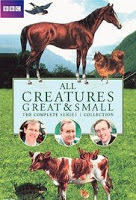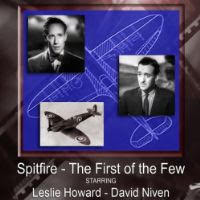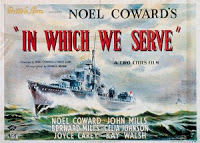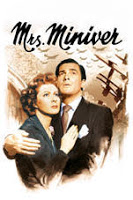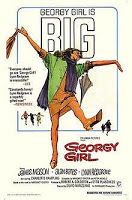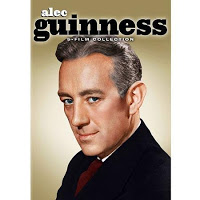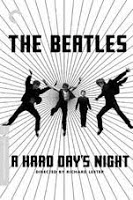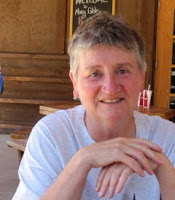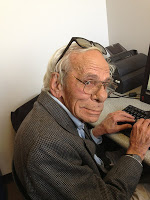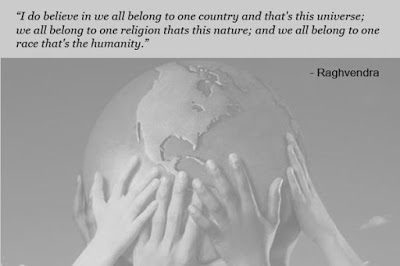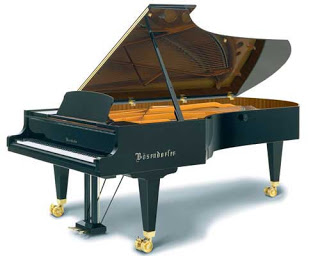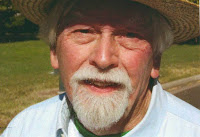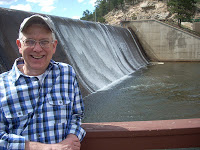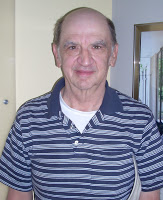I
have always thought myself blessed; I can live the time and place where my
nostalgia takes me any time I want. There are countless books, and especially
movies, about Britain during World War Two – the time and place of my early
years. There are not as many of the later 1940’s, or the ’50’s and ’60’s, but
there are enough. If I want to return to my childhood amongst remote farms, I
can watch and re-watch the old PBS/BBC series, All Creatures Great and Small,
which feels to me to be an almost exact replica of my childhood environment.
have always thought myself blessed; I can live the time and place where my
nostalgia takes me any time I want. There are countless books, and especially
movies, about Britain during World War Two – the time and place of my early
years. There are not as many of the later 1940’s, or the ’50’s and ’60’s, but
there are enough. If I want to return to my childhood amongst remote farms, I
can watch and re-watch the old PBS/BBC series, All Creatures Great and Small,
which feels to me to be an almost exact replica of my childhood environment.
If
I want to feel that stirring patriotism of the war years, emotions which I
think I recall but in fact was probably too young, I can watch the old
black-and-white movies of the time, many of which are cloyingly sentimental, such
as, In Which We Serve, The First of the Few, or the unabashed
propaganda of Mrs. Miniver.
I want to feel that stirring patriotism of the war years, emotions which I
think I recall but in fact was probably too young, I can watch the old
black-and-white movies of the time, many of which are cloyingly sentimental, such
as, In Which We Serve, The First of the Few, or the unabashed
propaganda of Mrs. Miniver.
In the ’50’s and ’60’s
came an era of more realistic movies dealing with the many issues remaining
after the war: Saturday Night and Sunday Morning, Billy Liar, and
Georgy Girl.
came an era of more realistic movies dealing with the many issues remaining
after the war: Saturday Night and Sunday Morning, Billy Liar, and
Georgy Girl.
Or
those films whose only purpose was to make us laugh, like the wonderful
selection starring Alec Guinness.
those films whose only purpose was to make us laugh, like the wonderful
selection starring Alec Guinness.
And
then, along came The Beatles with It’s a Hard Day’s Night, which
appeared in 1964, a year after I graduated from college. A nostalgic ride if
ever there was one.
then, along came The Beatles with It’s a Hard Day’s Night, which
appeared in 1964, a year after I graduated from college. A nostalgic ride if
ever there was one.
In the year of my birth
alone, 1942, Britain produced over 50 movies set in Britain. Yes, it is easy
for me to take that trip down memory lane any time I feel so inclined; which I
did quite frequently over the years. Opportunities
for nostalgic trips via the movies are even more plentiful, of course for
Americans. But most other first-generation immigrants like me are not offered
this escape; at least it is not immediately available from the local library,
and probably not even these days from Netflix and the like. How many movies are
there that would have you jump aboard and be immediately transported back in
time to 1940’s Latvia or 1950’s Guatemala?
alone, 1942, Britain produced over 50 movies set in Britain. Yes, it is easy
for me to take that trip down memory lane any time I feel so inclined; which I
did quite frequently over the years. Opportunities
for nostalgic trips via the movies are even more plentiful, of course for
Americans. But most other first-generation immigrants like me are not offered
this escape; at least it is not immediately available from the local library,
and probably not even these days from Netflix and the like. How many movies are
there that would have you jump aboard and be immediately transported back in
time to 1940’s Latvia or 1950’s Guatemala?
But in later years
something seemed to go wrong. I no longer delighted in this armchair
time-travel the way I used to. In fact, rather the opposite. Movies, either
fiction or documentaries, depicting my time and place of nostalgia, whether
made back then or current depictions of it, tended rather to depress and anger
me. They make me cry. They are sexist, classist, xenophobic, homophobic; all
the ists and ics you can think of. They are bigoted, 100% white and 100%
heterosexual. They are all about the unthinking, unquestioning, superiority of
men and equally unquestioningly subservient women. They made me question not
only my memory but my very sanity. This is the piece of history upon which I
gaze with such affection? It has been said that nostalgia is a longing for a
time and place which never existed. I fear that must be what I suffered from
for much of my life. Sadly, I began to see it more clearly for what really did
exist, and did not particularly like it.
something seemed to go wrong. I no longer delighted in this armchair
time-travel the way I used to. In fact, rather the opposite. Movies, either
fiction or documentaries, depicting my time and place of nostalgia, whether
made back then or current depictions of it, tended rather to depress and anger
me. They make me cry. They are sexist, classist, xenophobic, homophobic; all
the ists and ics you can think of. They are bigoted, 100% white and 100%
heterosexual. They are all about the unthinking, unquestioning, superiority of
men and equally unquestioningly subservient women. They made me question not
only my memory but my very sanity. This is the piece of history upon which I
gaze with such affection? It has been said that nostalgia is a longing for a
time and place which never existed. I fear that must be what I suffered from
for much of my life. Sadly, I began to see it more clearly for what really did
exist, and did not particularly like it.
I rather blamed my
efforts, over the last few years, to become a more spiritual person. This has,
as indeed it is part of it’s purpose, raised my consciousness; allowed me to
see things more clearly, as they are, rather than as a blurred concoction of my
own designing. But I hated that I was robbed of my nostalgia; my place of
escape on a bad day.
efforts, over the last few years, to become a more spiritual person. This has,
as indeed it is part of it’s purpose, raised my consciousness; allowed me to
see things more clearly, as they are, rather than as a blurred concoction of my
own designing. But I hated that I was robbed of my nostalgia; my place of
escape on a bad day.
More recently I have
turned yet another corner. I can still take that magic carpet ride. I can still
enjoy depictions of my past. It is simply that I have lost those tinted lenses
through which I once gazed with love and longing.
turned yet another corner. I can still take that magic carpet ride. I can still
enjoy depictions of my past. It is simply that I have lost those tinted lenses
through which I once gazed with love and longing.
I wouldn’t go back there
if you paid me!
if you paid me!
In 1952, when Alan Turin
was arrested for his homosexuality, I was an English schoolgirl of 12. What
hope was there for me to deal with, or even acknowledge, my own homosexuality?
Not that anyone knew anything of Turin at the time, all he had done for the Allied
war effort was kept under the secure wraps of the Official Secrets Act for
decades, but his terrible story is emblematic of the attitudes of the times.
was arrested for his homosexuality, I was an English schoolgirl of 12. What
hope was there for me to deal with, or even acknowledge, my own homosexuality?
Not that anyone knew anything of Turin at the time, all he had done for the Allied
war effort was kept under the secure wraps of the Official Secrets Act for
decades, but his terrible story is emblematic of the attitudes of the times.
So now I again enjoy
movies and books portraying that life I once lived. They no longer make me angry.
They simply offer pictures of a past which, thankfully, no longer exists. They
remind me of the many ways in which we have moved forward, for all that at
times it seems that we have not. I can recognize that past of which I was a
part, with at least a modicum of objectivity. I neither hate it nor love it. It
once was, and now it’s gone. Those spiritual teachers/guides would be proud of
me. I am truly, at least in this one instance, living in THE NOW!
movies and books portraying that life I once lived. They no longer make me angry.
They simply offer pictures of a past which, thankfully, no longer exists. They
remind me of the many ways in which we have moved forward, for all that at
times it seems that we have not. I can recognize that past of which I was a
part, with at least a modicum of objectivity. I neither hate it nor love it. It
once was, and now it’s gone. Those spiritual teachers/guides would be proud of
me. I am truly, at least in this one instance, living in THE NOW!
© May 2016
About
the Author
the Author
I
was born and raised in England. After graduation from college there, I moved to
the U.S. and, having discovered Colorado, never left. I have lived in the
Denver-Boulder area since 1965, working for 30-years at IBM. I married, raised
four stepchildren, then got divorced after finally, in my forties, accepting
myself as a lesbian. I have been with
my wonderful partner Betsy for thirty-years. We have been married since 2013.
was born and raised in England. After graduation from college there, I moved to
the U.S. and, having discovered Colorado, never left. I have lived in the
Denver-Boulder area since 1965, working for 30-years at IBM. I married, raised
four stepchildren, then got divorced after finally, in my forties, accepting
myself as a lesbian. I have been with
my wonderful partner Betsy for thirty-years. We have been married since 2013.
